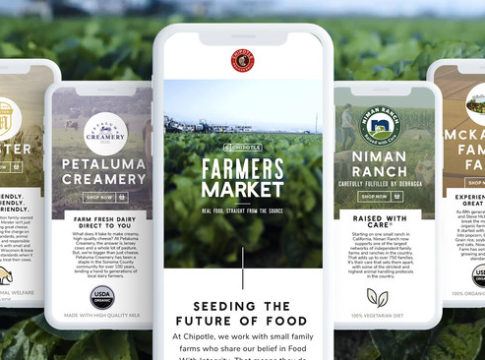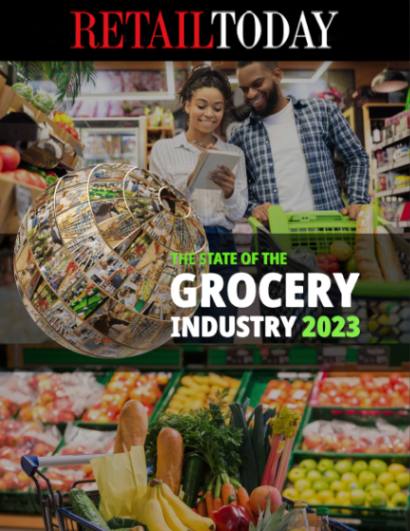Chipotle Mexican Grill (NYSE: CMG) has announced the Chipotle Virtual Farmers’ Market, powered by Shopify, that will allow farmers in the Chipotle supply chain to launch improved versions of their own eCommerce websites. Through individualized online marketplaces, Chipotle suppliers will be able to sell meat, dairy and grain products, and other items directly to consumers across the country. As a digital innovator known for seeking long-term solutions, Chipotle is assisting in the development of each supplier’s site, covering hosting fees on Shopify for two years and supporting the design and development of the direct-to-consumer storefronts.
The agricultural industry has been weathering a crisis for years that has recently been magnified and accelerated due to the COVID-19 pandemic. Farmers around the country have had to destroy millions of pounds of fresh goods due to decreased demand with restaurants, hotels and schools closed. The Chipotle Virtual Farmers’ Market aims to give Chipotle’s suppliers a new stream of revenue and enhance their commitment to sustainable farming practices amid unforeseen circumstances.
“It can be intimidating for many family farms to change the way they do business, so we’re giving our suppliers the right tools and resources to successfully launch improved eCommerce platforms,” said Chris Brandt, Chief Marketing Officer. “Our Food with Integrity values start with our farmers and helping them adapt to new technologies and ways of reaching the consumer is crucial for both the future of the farming industry and Chipotle.”
To kick-off the program, four different Chipotle suppliers will sell through their own individual digital storefronts as part of the Chipotle Virtual Farmers’ Market: Niman Ranch, Petaluma Creamery, McKaskle Family Farm and Meister Cheese. Each supplier is essential to Chipotle’s existing restaurant supply chain and has been working with the brand for over a decade. Niman Ranch supplies restaurants with pork for carnitas and beef for steak and barbacoa. Petaluma Creamery provides Monterey Jack shredded cheese, Meister Cheese provides Monterey Jack shredded cheese and Monterey Jack cheese for Queso Blanco, and McKaskle Family Farm supplies organic white and brown rice. Each product used in Chipotle restaurants is called out next to each farm on the Virtual Farmers’ Market homepage, so fans can easily order key ingredients in their favorite menu items. Throughout the week, Chipotle’s Director of Culinary and Menu Development Chef Chad Brauze will share Chipotle Virtual Farmers’ Market-inspired recipes on Chipotle’s TikTok channel.
Customers from around the country can find links to each supplier’s virtual storefront by visiting: farmersmarket.chipotle.com. The four storefronts can also be accessed directly:
- Niman Ranch
- Petaluma Creamery
- McKaskle Family Farm
- Meister Cheese
Over the past month, Chipotle and Shopify have worked together to lead virtual onboarding sessions with the partner farmers to help them get acquainted with Shopify’s eCommerce platform.
“This new Virtual Farmers’ Market gives an opportunity for my farm, and hundreds of other small, sustainable farmers like me in the Niman Ranch network raising livestock humanely and without antibiotics, to remain sustainable and resilient through hard times,” said Kirsten Eckerman, Wisconsin farmer for Niman Ranch.
As reported in its latest Sustainability Report Update, Chipotle is empowering the next generation of farmers by offering education, scholarships, grants, and three-year contracts to young farmers. Chipotle and the Chipotle Cultivate Foundation have contributed over $500,000 to-date to support the next generation of farmers through the National Young Farmers Coalition. Most recently, 50 diverse young farmers were awarded $5,000 grants to begin or grow their business, 78% of which represent minorities in the industry. Additionally, Chipotle and Chipotle Cultivate Foundation are helping growth stage ventures across the country to advance innovative solutions in farming through the accelerator program, Chipotle Aluminaries Project 2.0.





